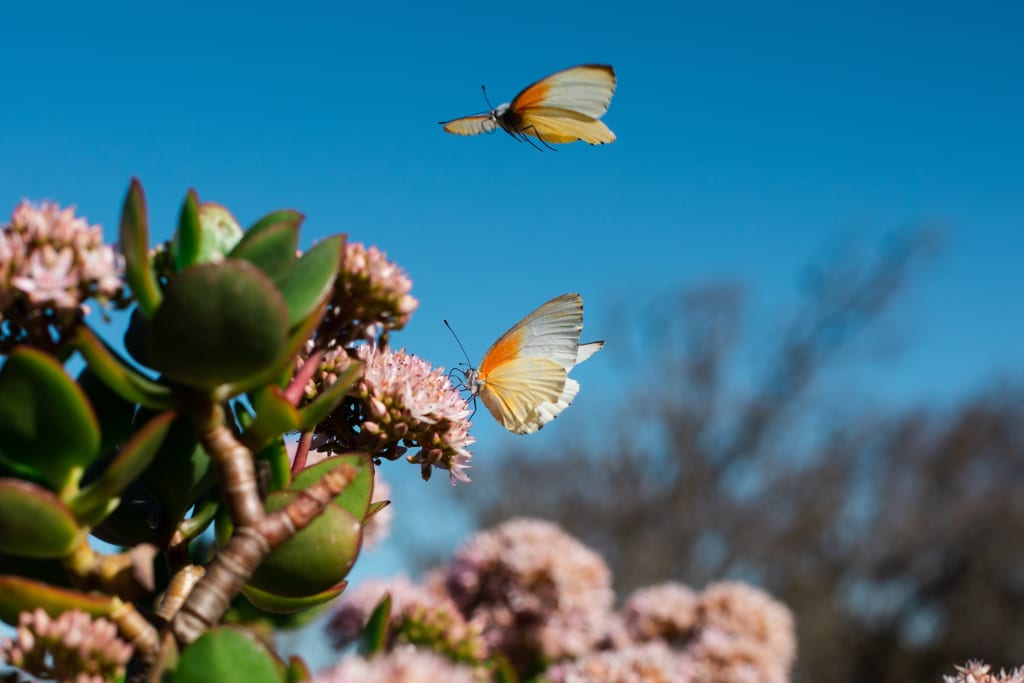What Important Lessons Have we Learned from the Pandemic as we Prepare to Spring Forward?
Turning Over a New Leaf

With more time on our hands, the last 12-months of full and semi-quarantine have forced many of us into a deep state of self-reflection that lifted the veil that exposed a plethora of our deepest innermost thoughts.
As we begin to turn over a new leaf and emerge from our quarantining cocoons and evolve into “freedom seeking butterflies,” resulting from progress on the vaccination front, the salient question is whether this transformative process will prove to be positive or negative. This is relevant because it will shape our overall behavior as we enter the next phase of journey replete with “Rip Van Winkle effects.”
Changes in the ways workers communicate with each other, a surge in E-commerce and new ways that Consumers are now entertaining themselves are just a few of the innovations that have made their debut in a time-compressed fashion over the past year. Thousands of other innovations have also been implemented behind the scenes over the past year!
While some of these changes may fade away, I suspect many will not, thereby forcing us to adapt to many of the innovations that will survive until the next wave of technological disruption strikes again. And although our world is always evolving, most will agree that the ravenous pace of innovation during the past year far exceeds anything any of us have experienced during our lifetimes.
What Happened to Many of Us During the Past Year?
The pandemic experience made me feel more vulnerable as I probed deeper into my innermost feelings that were never previously explored. Now questions of whether I was capable of entertaining myself or needed others for survival moved to a front and center position!
On the positive side, the luxury of additional time as I “Sheltered in Place”, gave me an excuse to stop complaining that I never had enough time to complete all my work-related assignments. It was always easy to say --- “I would have performed better if I had more time to focus.” That was a very popular defense mechanism available to many of us prior to the start of the pandemic.
On the negative front, as many of us worked from home, to protect ourselves from the ravages of the Covid-19 pandemic, we suddenly became less time deprived and realized that the success/failure of any project or task could be more easily traced directly back to us. How did I deal with this new reality? I was so terrified of a negative outcome that I overcompensated by investing an overabundance of time and resources to each project assigned to me.
We all know that this is an inefficient use of our resources that surely dampens our productivity – but when we believe that the buck truly stops with us, the fear of failure quickly moves from being a next-door neighbor to becoming a cohabitating roommate.
What’s Next?
Now that a glimmer of light is close at hand as the economy prepares to fully reopen as more individuals become vaccinated, it may be an opportune time to take stock of the lessons learned from our “once in a lifetime pandemic experience.”
One undeniable lesson is that for many of us the fear of failure may loom as large as fears of our own mortality. To address this latter concern, many individuals simply choose to buy life insurance to protect their loved ones in the event of an untimely death. Using this same line of reasoning, as we prepare to “Spring Forward,” as our economy reopens --- we may equally need to find a remedy to compensate for our “feelings of insecurity,” associated with failure.
Game Plan
Using the direct lessons of the pandemic, I have made a conscious decision to devote more time to meticulously outline and develop a pre-planning strategy for every project I accept.
Yes, it will take a little more time to complete each assignment (especially at the front-end), but the pre-planning process will represent a form of “project insurance,” needed to hedge against the risk of failure.
Interestingly, this strategy is not dissimilar to the private-sector chatter among many U.S. Corporations that are currently pondering a shift from “Just-In-Time,” to “Just-In-Case” Inventory that involves holding increased inventory stocks to guard against the risks of having to interrupt production or miss out on sales due a lack of inventory.
And although, both strategies will undoubtedly reduce the efficiency of our Corporations and even our individual productive endeavors --- an important lesson from our pandemic experience is that hedging against failure remains a viable option even it comes at the expense of higher costs to all. As for me, spending more time at the front-end of every project I take on, will grant me the comfort of knowing that in the event of failure, I will know that I gave it my best which is all that anyone should expect from anyone.
This strategy will undoubtedly allow me to fly as freely as a newly developed butterfly!
About the Creator
Anthony Chan
Chan Economics LLC, Public Speaker
Chief Global Economist & Public Speaker JPM Chase ('94-'19).
Senior Economist Barclays ('91-'94)
Economist, NY Federal Reserve ('89-'91)
Econ. Prof. (Univ. of Dayton, '86-'89)
Ph.D. Economics






Comments
There are no comments for this story
Be the first to respond and start the conversation.